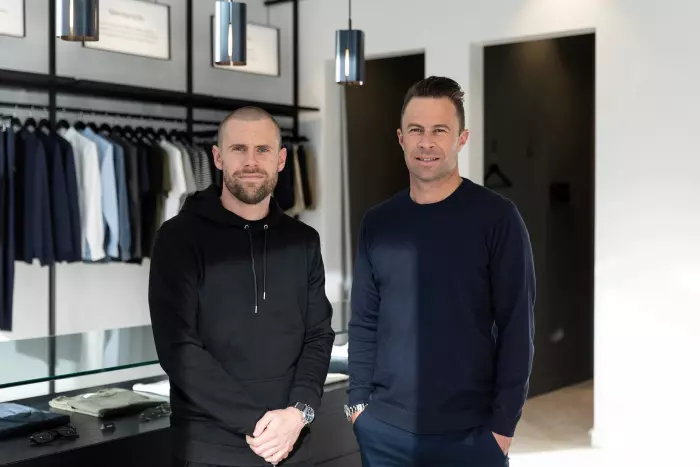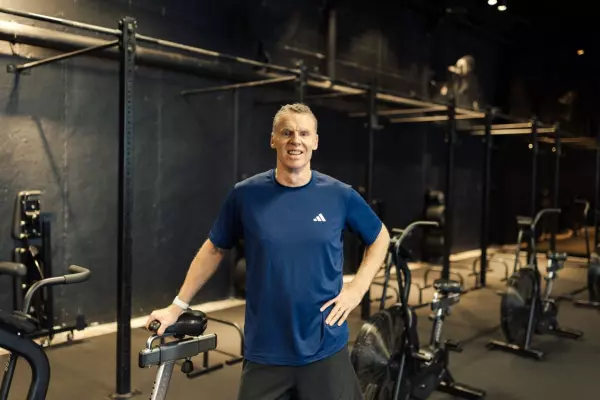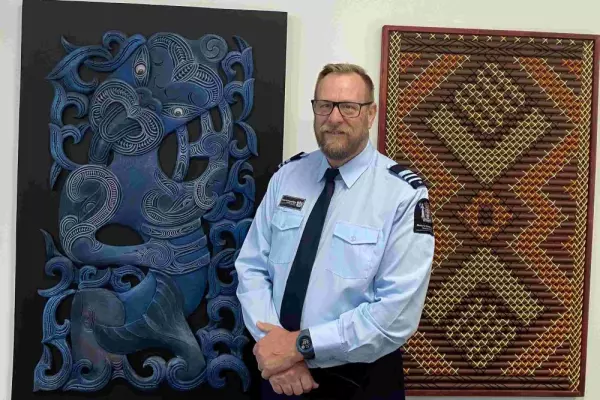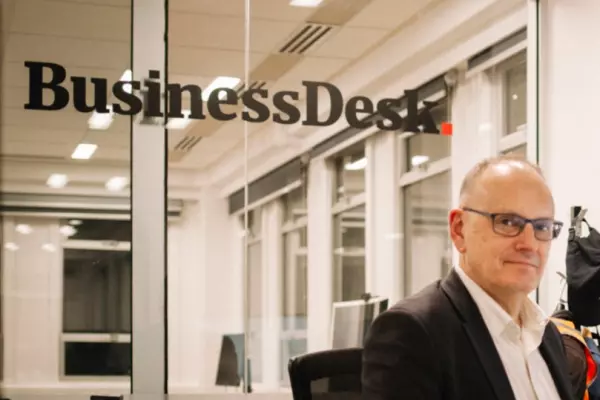Businesses are born out of all sorts of quirky ideas but for brothers Sam and Noah Hickey – the founders of men's clothing subscription service Asuwere – it all started with something quite simple: a linen shirt.
Asuwere’s creative director Sam Hickey says he’s always been passionate about good, classic tailoring. And when he moved back to New Zealand from London in 2018, the struggle to find a decent linen shirt that suited his style was the inspiration he needed to create his own.
After launching their linen shirt in November 2017 – it sold out immediately.
The brothers saw this as a real opportunity. Noah, who handles the tech side of Asuwere, challenged their thinking of the traditional retail model and the pair brainstormed the idea of a clothing subscription service for men that would help cut through the fashion noise and help simplify men’s clothing choices.
“We really saw the demand for well-designed classic clothing,” Sam Hickey says. “It showed that there was quite an apparent need in the market.”
The brothers launched Asuwere in November 2018 and haven't looked back since.
Asuwere members pay a monthly fee ranging between $50 and $100, which entitles them to a new item of clothing each month, tailored to their needs and delivered to their door.
Hickey says Asuwere’s ethos is all about stripping out the stress from clothes shopping and turning it into an enjoyable experience that helps build confidence – and a better wardrobe – at the same time.
“We've got a smart casual wardrobe which is very much aligned with how more and more people are dressing these days,” Hickey says.
It’s not just guys who are big fans of Asuwere’s subscription service either – Hickey says many of their male clients' accounts are actually run by their wives and partners.
“We have guys that are signed up for Asuwere that absolutely hate shopping and their wife or partner runs their subscription for them,” he says.
“It’s very common among our members and the feedback we get from wives and partners is incredible.”
Covid's shadow
Just two years into Asuwere’s journey, a pandemic the world didn’t see coming was unsurprisingly not in the brothers’ plans, either.
But the subscription-based business model served them well – and in some ways saved them. Hickey says if they’d been running purely as a retail store, the pandemic’s business environment would’ve been much harder to survive.
“There are obviously supply chain issues and other factors that come into play, where you have to adapt in terms of lead times and ordering things earlier,” he says.
“But with the subscription, everyone gets charged on the first of the month, so we have our recurring revenue already locked in place, which has been hugely beneficial.”
They don’t have to worry about clearing all their stock each month, Hickey says, nor be forced to put items on sale before new garments arrive to meet costs, because their clothing never goes out of fashion.
“Our products make up a core range of clothing and we don't do anything too out-there or that’s out of style.”
It’s not just the clothing needs of their customers that Asuwere is passionate about. They're proud of their Give to Get programme.
It encourages Asuwere members to bring in clothes collecting dust in their wardrobes. They're donated to Asuwere’s charity partners, organisations like Koha Apparel and Fix Up Look Sharp, which provides clothing to men in need.
“This programme is a really rewarding part of the business for us,” Hickey says.
“We recognise that our people have clothes in their wardrobes that they'll no longer wear that can find a new home.”
In their latest campaign last month, more than 1,000 items of clothing were donated by members. Hickey says Asuwere has also pledged $40,000 worth of its clothing to donate to its partner charities.
“We genuinely care about good clothing – it shouldn't just be for a select few, it should be for everyone,” he says.
Hickey’s not quite sure what the future holds for Asuwere, but he’s keen to see where the journey takes them.
“We've still got a business model that doesn't really exist – and there's a lot of education that comes with that,” he says.
"But as we've grown, we’ve learned a lot more about our members and their needs, and our future really leans into that – the wardrobe is just the beginning.”














